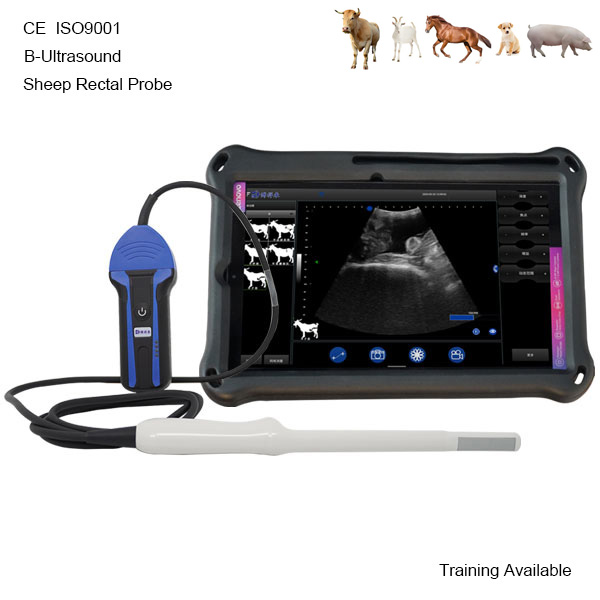The Role of Sheep Ultrasound in Goat Reproduction
The application of sheep ultrasound in goat breeding control has attracted increasing interest. Sheep ultrasound can perform early pregnancy diagnosis in goats via rectal and abdominal examinations between 24 et 29 days post-mating, and via the abdominal route between 34 et 40 Jours, with sensitivity varying between 65% et 100%. Ultrasound is also used to determine the sex and number of lambs, estimate fetal weight and gestational stage, diagnose embryo/fetal mortality, and detect pseudogravity. It is used for diagnosing postpartum anestrus and monitoring follicular dynamics.

High-Definition Sheep Ultrasound Detection of Ewe Pregnancy
Early detection of non-pregnant ewes is a primary goal for optimizing goat farm production performance. The earlier non-pregnant ewes are observed, the faster animal techniques or treatments can be implemented to shorten the time required to achieve a new pregnancy.
Ultrasound probes used for goat reproduction are available in linear, fan-shaped, or convex types. Their frequencies range from 3.5 À 7.5 Mhz. Increasing frequency is accompanied by increased resolution, enabling the differentiation of very close structures, but reduces detection depth. For frequencies of 3.5, 5.0, et 7.5 Mhz, these correspond to 17-20, 10-17, et 5-7 Cm, respectively. Ultrasound examinations are typically performed transabdominally in the right groin area, with a gel applied to the probe to facilitate ultrasound penetration. The advantage of transabdominal examination is reduced risk to the rectum and/or abdomen. In both transrectal and transabdominal examinations, the probe cable is secured with appropriate support. Regardless of the route used, ultrasound examinations must be performed on a standing animal, calm and with restricted movement (keeper restraints, locks, restraint corridors, milking parlors, etc.).
Observing and monitoring pregnancy in goats using ultrasound machines plays a crucial role in improving the profitability of goat farms. Ultrasound provides the possibility of reporting pregnancy in goats within four to five weeks post-mating, determining the sex and number of fetuses, and estimating fetal age and weight.